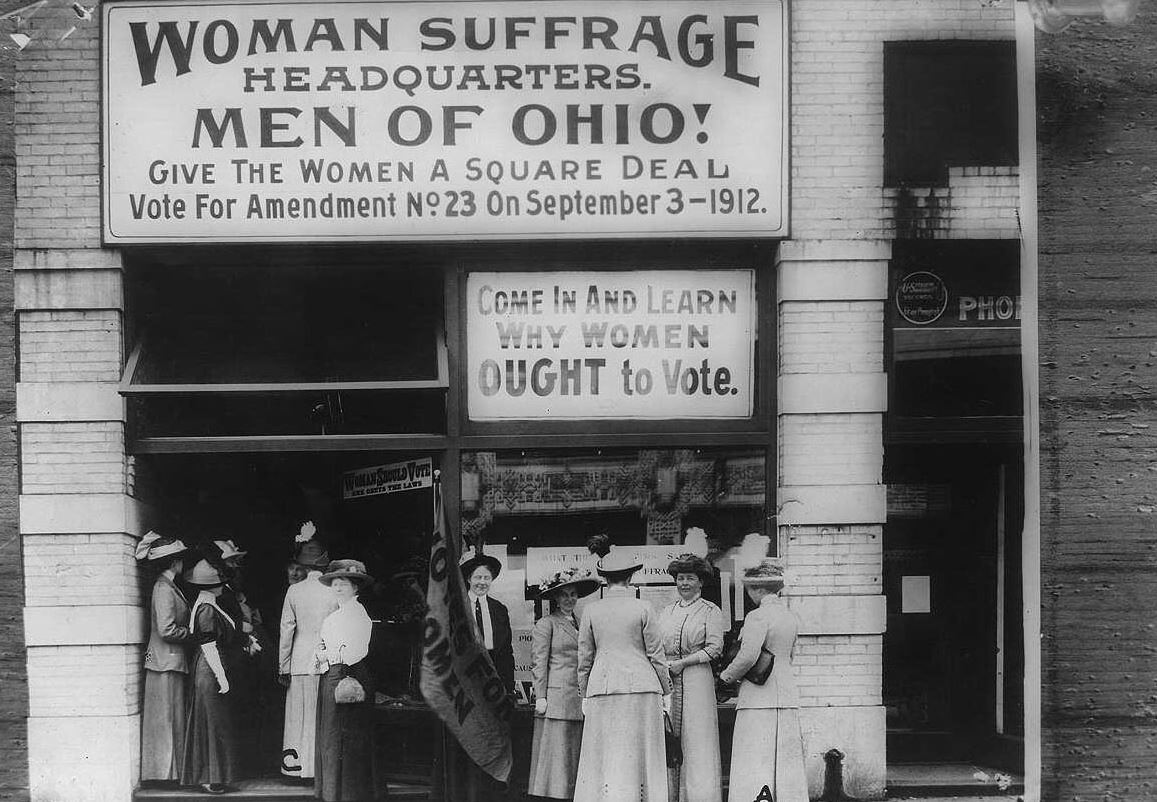G.K. Chesterton’s What’s Wrong with the World contains a section of feminism. By way of providing an accurate preview of what’s to come, he titled it “Feminism, Or the Mistake about Woman.” Yes, G. K. Chesterton had his differences with the feminist movement, then in its infancy. Chief among his differences was the mistaken view (in his view) that there were no differences between the sexes.
Were the differences that he saw a matter of nature or nurture? Chesterton does not wade, much less charge, into that thicket. He simply assumes that differences exist. He also assumes that those differences are important, vital to a good society, and well worth preserving.
His take on those differences also led Chesterton to have his differences with the suffragist movement in England. One of those differences was to use the less preferred term, suffragette, in reference to them. Preferred or less preferred term aside, the key difference was his opposition to the vote for women.
Are you still reading? I hope so, because his thoughts on the twin subjects of feminism and the male-female difference (or the lack thereof) are worth exploring, whether one agrees or disagrees. But first let’s put a Chesterton counter-proposal on the table.
Chesterton found it more than curious that male politicians wanted women to be able to vote on everything, except for the question of granting women the right to vote! Maybe those same politicians had the same suspicion that Chesterton did. And just what was that? Chesterton suspected that if women alone could vote on the issue of granting the suffrage to women that it would be defeated.
Why? Because he presumed that women understood that the vote was not something of great importance. Most men (but not Chesterton) thought differently. Most men, thought Chesterton, regarded the vote as something of “frightful importance.” But they didn’t think that women would ever believe them. Did they?
There might have been an answer to that question if women had had the opportunity to vote on the subject. But Chesterton’s proposal was never adopted. Instead, men eventually voted to give women the vote. Chesterton drew the following conclusion from the result: Having told women that the vote was of frightful importance, men extended the franchise to women. As a result, a “terrible thing happened to men: we won.”
Of course, suffragists in England had been putting increasing pressure on men to grant women the vote. Sometimes that pressure resulted in public protests. After newspapers reported on one of these public protests, Chesterton could not resist a few comments of his own. It seems that some suffragists had taken to punching policemen. In an essay in the Illustrated London News, Chesterton turned his commentary on the scene into a commentary on one of the differences between the sexes.
Punching policemen struck him as a “bad tactic” because it was “not at all a female tactic.” While the newspaper reports didn’t say so, Chesterton suspected that at least some of the policemen must have been amused, perhaps even laughing: “After all, when a woman puts up her fists at a man, she is putting herself in the one and only position (where) she does not frighten him.”
Chesterton was far from finished. After all, by his reckoning there were many female attitudes and gestures that could be thoroughly frightening to a man. “Every turn of a woman’s head or hand is quite capable of shaking a man, any man, like a dynamite explosion.” Just warming up, Chesterton continued: “Every man who is a real man is afraid of a woman’s tongue—and still more of her silence. He is afraid of a woman’s endurance, and still more of her collapse. He is afraid of her sanity—and her insanity. He is afraid of her laughter—and her tears.”
At that point Chesterton was finished. Or was he? Not quite. Here is his conclusion: “But her fists? When one really thinks about this, one realizes that the only part of a woman which a man does not fear is her deltoid muscle.”
At this point Chesterton had finished making this particular point. But he was far from finished with the larger subject of male-female differences, whether his thoughts are to be found in What’s Wrong with the World or in Illustrated London News essays. For the time being, however, let’s be content with letting his politically incorrect approach to the subject sink in a bit before taking the question of differences between the sexes beyond matters of deltoid muscles and punching policemen.
—
Image Credit:
Public Domain via Wiki Commons
















Leave a Comment
Your email address will not be published. Required fields are marked with *